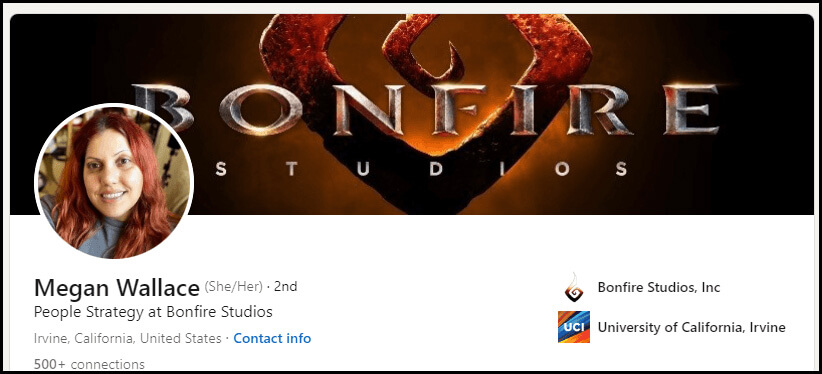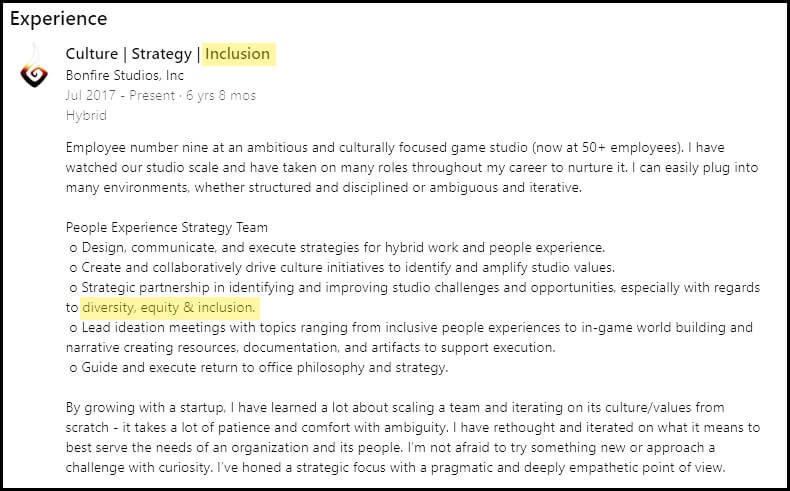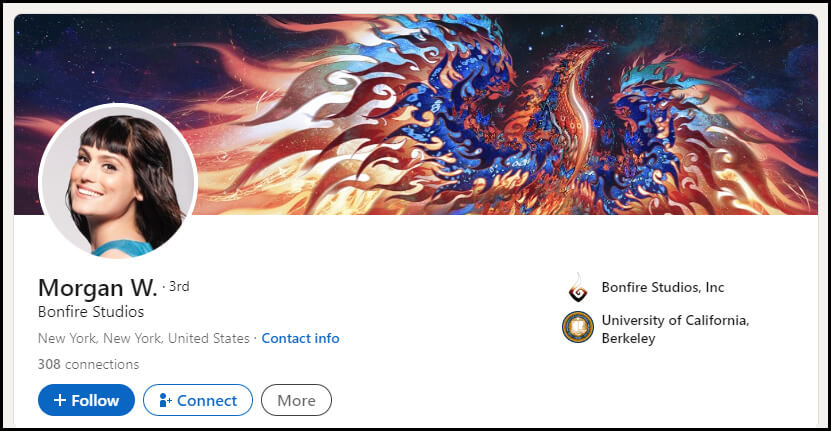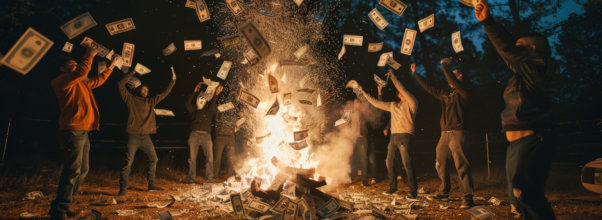Once upon a time, former Blizzard chief creative officer Rob Pardo was considered one of the smartest people in the video game industry. In 2006, he joined an elite club when TIME Magazine anointed him as one of the TIME 100. Pardo’s claim to fame is that he helmed the Blizzard Entertainment dev team that created the groundbreaking mass-market MMORPG World of Warcraft.
Back then, Pardo’s superpower was to take existing original niche games like EverQuest and streamline them, innovate on them, and polish them to perfection. But what happens when you run out of games to steal your ideas from?
I suspect this might be the core problem at Bonfire Studios.
This shortcoming is not only a problem for Pardo, it’s a problem for Blizzard in general. For the past 10 years, they have been unable to come up with anything truly original. Project Titan which was an ambitious MMO cost $50 million before it was canceled. Recently Microsoft who just acquired Blizzard canceled Odyssey a survival game that had been in development for 6 years.
Blizzard likes to develop its games in stealth mode. Only when the game is fun™, do they announce it. If it’s not fun, they cancel it with no fanfare. It seems that Pardo and Bonfire are following suit and developing in stealth mode in contrast to indie studios that are developing their games with the support of communities that coalesce around their game via crowdfunding and early access on distribution platforms like Steam.
It’s quite obvious that Rob leveraged his accomplishments at Blizzard to convince investors to give him $25 million. Therefore it’s entirely reasonable to ask what Rob Pardo is doing with the money that investors have given him. As this is my second article on this subject and I don’t want to repeat myself but many of my concerns from 2020 are still valid and even more so given that 4 years have elapsed since my first article.

From the inception of Bonfire Studios, Pardo has pontificated at length at he wants to reinvent the way video games are made. He’s made many exhortations about the importance of teamwork and creating a studio culture that is democratic and holistic. At this stage in the game — no pun intended — is this approach bearing fruit?
If you look at the Bonfire Studios website and their LinkedIn page, I see a lot of dubious culture and HR positions. Naturally, I see a lot of woke virtual signaling from the various females at Bonfire who prattle on endlessly about empowering women in the video game industry. I see the women of Bonfire Studio going on special retreats. It seems like a lot of dead weight and wasteful spending for a company that still has nothing to show for it.


What does someone who is in charge of “people strategy” do all day at Bonfire? Looks like we have the answer:

I wonder if all those white women (Pro Tip: Hispanics are not a race) employed at Bonfire would consider giving up their roles to a minority or “marginalized” person?
We already know the answer.


There are more trophy, culture, and diversity hires as well that I haven’t bothered to post here. Given the rampant nepotism in the industry, it would not surprise me that some of them are married to male employees but use their maiden names to disguise the truth. With the preponderance of female employees rest assured that whatever Bonfire Studios creates, you know it will be woke and riddled with DEI and alphabet content.
All of these issues are red flags that are making me lose confidence in Rob Pardo’s ability to run a studio and produce a video game that people will like.
Another thing that bothers me is that I don’t see Pardo speaking directly to gamers anymore in any meaningful way about what his vision is for the future of gaming. Many game designers settle down and have families and talk about their children and in the process lose their relatability to male gamers who are the core demographic of the video game industry. The inevitable result is the infantilization and feminization of video games.
I’m not sure that Pardo has the right stuff to be a passionate evangelist for whatever Bonfire will be producing. Watch the video below where both Rob Pardo and Chris Metzen expound on fantasy virtual worlds. You can see that even the non-BlizzCon version of Metzen exudes far more passion than the mild-mannered Pardo:
As a gamer that loves fantasy virtual worlds — especially World of Warcraft which was helmed by Rob — there’s nothing at the Bonfire site that gives me a sense of anticipation for something extraordinary coming our way on the horizon. All I see in their roster is recycled talent from Blizzard and other SoCal studios and plenty of hipster platitudes that are common in the industry today. Talk is cheap.
The impression I get from their website is that it is meant to impress the industry, investors, and potential recruits. There is scarce mention of anything to do with the player community. Does it matter? Will it matter? And, do they even care about the community authentically and tangibly? Who knows.
So far there’s been no outreach to streamers, bloggers, or writers from Pardo. When the time comes, you can be sure that they will reach out to Dean Takahashi, Jason Schrierer, and other reliable industry hacks to promote their upcoming game which is unfortunate and predictable.

When Peter Jackson embarked on his epic voyage to craft the trilogy of Lord of the Rings films in the late 1990s, he reached out to the existing Tolkien community and fanbase. Jackson flew fans down to New Zealand to give the world reports on their progress and kept the various Lord of the Rings communities engaged throughout the entire multi-year process. What Peter Jackson did by involving the community was revolutionary and as a result, it helped to make his trilogy of films the gold standard in fantasy. Video game studios could learn a lot from this kind of novel outreach strategy.
To their credit, Steven Sharif and Intrepid Studios have embraced this approach and involved the MMORPG community in the development process of their upcoming Ashes of Creation fantasy virtual world.
Conclusion
As a game developer myself who is making a self-funded indie game, it’s disconcerting to see a studio that is rolling in the deep with millions of dollars of funding, still has nothing to show for it. It also breaks my heart to see companies like Blizzard waste hundreds of millions of dollars on canceled games ($100+ million burned on both Titan and Odyseey) when it could have been better spent.
However, there’s no guarantee that lots of funding equates to making great games. We are at the point now where games like Valheim made by a team of 5 started development in 2017 — a year after Bonfire Studios was formed — got released in 2021, and grossed $150 million. So it’s not all about funding, it’s about originality, creative vision, boldness, and talent.
I understand that Rob and company do not want to release a game before it’s ready, but this has gone on too long. Bonfire has nothing to show after 8 years of development and $25 million of investment. By this time they should have at least announced their game and started the process of building a community around it.
Blizzard’s Hearthstone (originally called Project Pegasus) was started in 2008 with a small exploratory team and under the direction of Blizzard’s chief creative officer Pardo. It was announced in 2013 and eventually was released a year later 2014. That was a 6-year development duration. Doing the math with Bonfire, it’s already been 8 years since the inception of the studio. All things being equal, they are two years behind schedule.
Where’s the Wagyu Rob?
I have a tremendous amount of respect for Rob and what he achieved as the leader of the WoW team. But, we need to be honest here: it has been almost 10 years since he left Blizzard Entertainment and in that time he has not shipped one video game. If you asked a gamer on the street who Rob Pardo is, they would probably shrug their shoulders and look puzzled. Maybe it’s a curse instead of a blessing that Pardo was honored by TIME Magazine. Other anointed Gamer Gods like Brad McQuaid met a similar fate of not being able to live up to the hype and eventually faded into obscurity.
There’s an old maxim in the music business: you’re only as good as your last album. In Pardo’s case that was Hearthstone, but that was 10 years ago.
To whom much is given, much is expected. The clock is ticking and it’s time for a reality check. At some point, you have to walk the walk and deliver what you promised. The longer Rob and his team take, the higher the expectations will be.
–Wolfshead





He should have named the studio Pyre and not Bonfire. Pardo was definitely part of the WoW team, but he was one part. It’s part skill but also part luck and fate that all the people involved got together and created something beautiful.
There is also Chris Roberts and Star Citizen, which is a triumph of selling an idea an collecting more money, or a scam scheme, let’s see how this will end.
We see nowadays ever more content everywhere, and ever more of it is high production value with zero value otherwise. That goes on Twitch and Youtube as far as reading excerpts of the manual and labeling it as in-depth guide with a metric ton of voice and video for minimal actual content.
Look at Amazon Studios. They have an amazing track record of high production value for creating things that are just not memorable or better forgotten entirely. And always add an overdose of woke, so that people are fed up even more.
The current crop of popular games is so awful, seems this generation just gets not served anything better. I was born in blessed and better times, but pity me, I still like to play games and see they are just like what I just said. High gloss, high production value, everything else terrible plus too often with a fair dose of wokeness.
The video game industry is sickening and appalling, to say the least. Every grifter, con artist, and huckster seems to want to be a part of this industry.
The reason why new games suck is because of the people that make them. They bring their mediocrity and woke values with them. Garbage in, garbage out.
Look at that photo of Rob Pardo and notice who else appears in it. One of the slimiest people in the industry and other assorted clowns.
I’ve been seeing this for a long time, but until now, I was unable to describe it with words, here is an attempt:
We are in a period where everyone has the tools to “start things”, but “to never finish them”. This is the state of a lot of things – perpetual beta/early access – everyone and their dog’s pet gold fish can start a game or something with the tools provided, but nothing anymore has depth, soul, you don’t see the creator’s desire to share something personal with others and “wow” them with it.
Everything feels like it’s built on a template and everyone is scared shitless to stray even one millimeter away from the tried and tested template. I don’t remember seeing a game since around 2011 that does something unique or new or is interesting enough to become addicting in any way. Everything feels recycled. And now with everyone using Unity and Unreal Engine, it’s very common to see 5 different games on Steam sharing the exact same character assets.
Looks like the next step is employing the so-called “AI” into generating content. The way I imagine this happening is they write a prompt, the “AI” generates generalized content, then “developers” start manually working on top of this and they save a lot of time and money, but then games will look even more the same, people will start discussing “which AI was used in this game”.
As for these “studios composed of ex-developers from an iconic studio of the past”, I don’t know, but I only see it happening in North America. Not in Europe, not in Asia, not anywhere else. It’s like there is some “cult of personality” where certain names are selling a product. The problem is none of those ex-developers ever do anything noticeable on their own. David Brevik made some 2D pixel game that looks like Terraria. There was a game called “Hero’s Song” by some ex-developers from EverQuest, that failed and died, now it’s almost impossible to try and find a download, but it’s not worth it, the game is so bad anyways. These ex-developers no longer have the mojo or the internal drive to create something. Their fans aren’t 15 year old, they are 35-40 year old who (hopefully) have families and jobs and don’t have the time to play games as much anymore. So they have the choice to cater to either middle-aged people or try to appeal to the 15 year olds of today and end up like Steve Buscemi with the hoodie, baseball cap and skateboard saying “Hello, fellow kids.”
The whole problem with this, as I’m realizing right now as I’m writing this, is that people try to live in the past – they either want to play their old games and wonder why the more they play them, the less they enjoy them, they wonder why new games aren’t as good as the old ones and so forth. Nothing is like it used to be anymore and the unsettling part is I can’t really think of any solution for it, it’s almost like a lost cause – nobody is even trying anymore about anything.
Good points! I think many in the industry are uncreative and lazy. Most have no idea what they are doing and just follow the pack. All they can do is make the latest clone game. Whatever is popular at the time, they just try to duplicate it. The problem is that development cycles are so long that by the time they come out with their clone game the public has moved on.
This is why many developers resort to putting on woke propaganda in their games. It’s all they really know and they know that nobody will criticize them for it because nobody wants to be labeled a racist, etc.
There’s no real freedom in the video game industry. Most of the people on LinkedIn are parroting “the narrative” and are afraid to tell the truth or say something controversial.
I really believe the invasion of women into video games — as players and as developers — has destroyed the genre. Everything is feminized now. Women and feminists are more likely to be pro-LGBTQ as well. The state of video games just mirrors our dying culture.
People play old games/MMOs like EverQuest and others because those games were made by normal people who cared more about making great games than promoting woke ideology. The same thing is happening with online streaming of movies and TV. Most people are watching old films and TV shows. This is a huge red flag that the entire entertainment industry is going to collapse.
Bottom line: our current overlords and millennials and Zoomers are incapable of making worthwhile content. This is a forest fire that will have to burn itself out and have a phoenix-like rebirth like.
I can’t wait for this mess to start imploding by itself.
Me too! I have purchased a lot of microwave popcorn 🙂
It still boggles my mind that one of the architects of World of Warcraft gets $25 million, creates his studio, and takes 8 years with nothing to show and no critical articles are investigating this except mine.